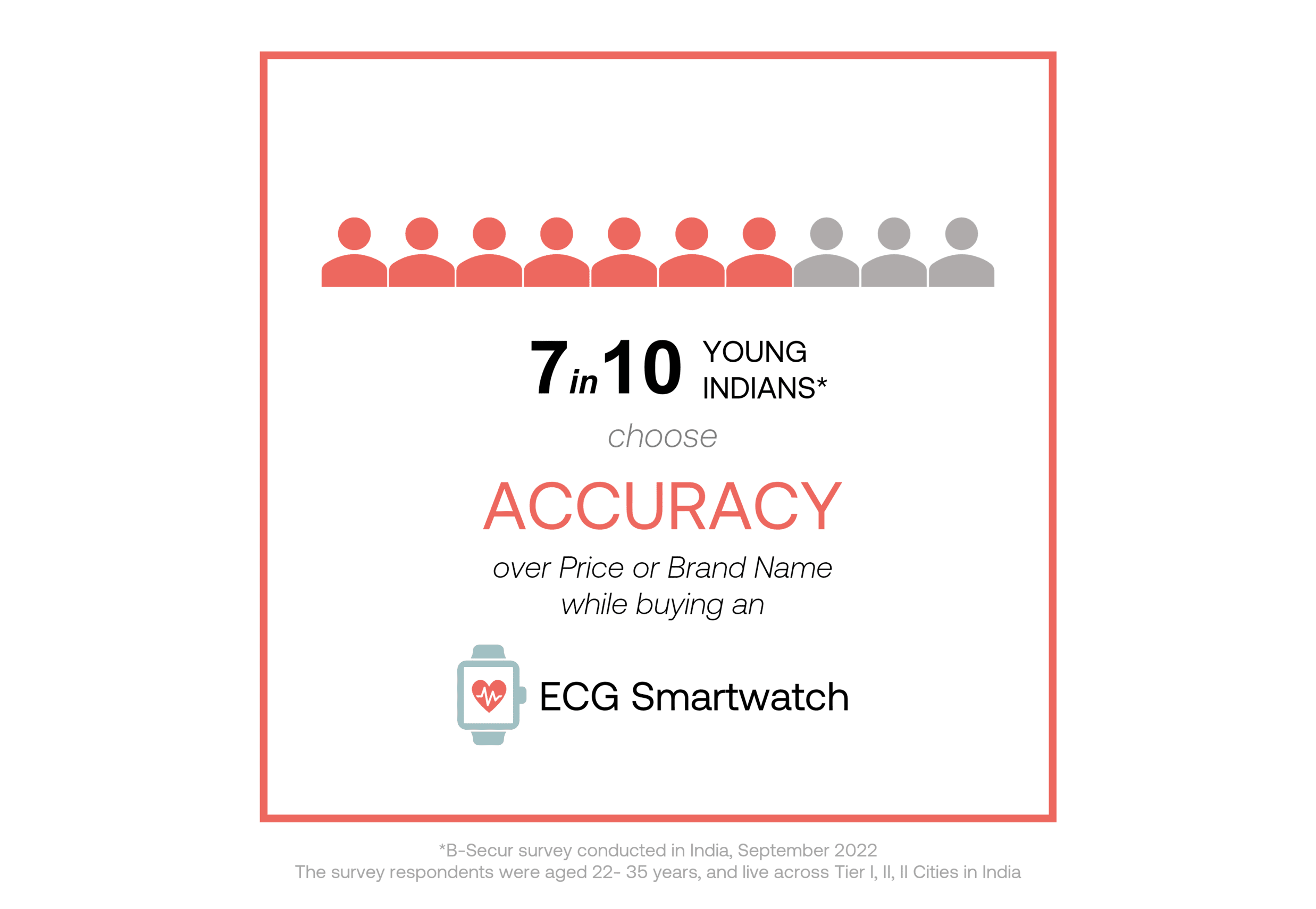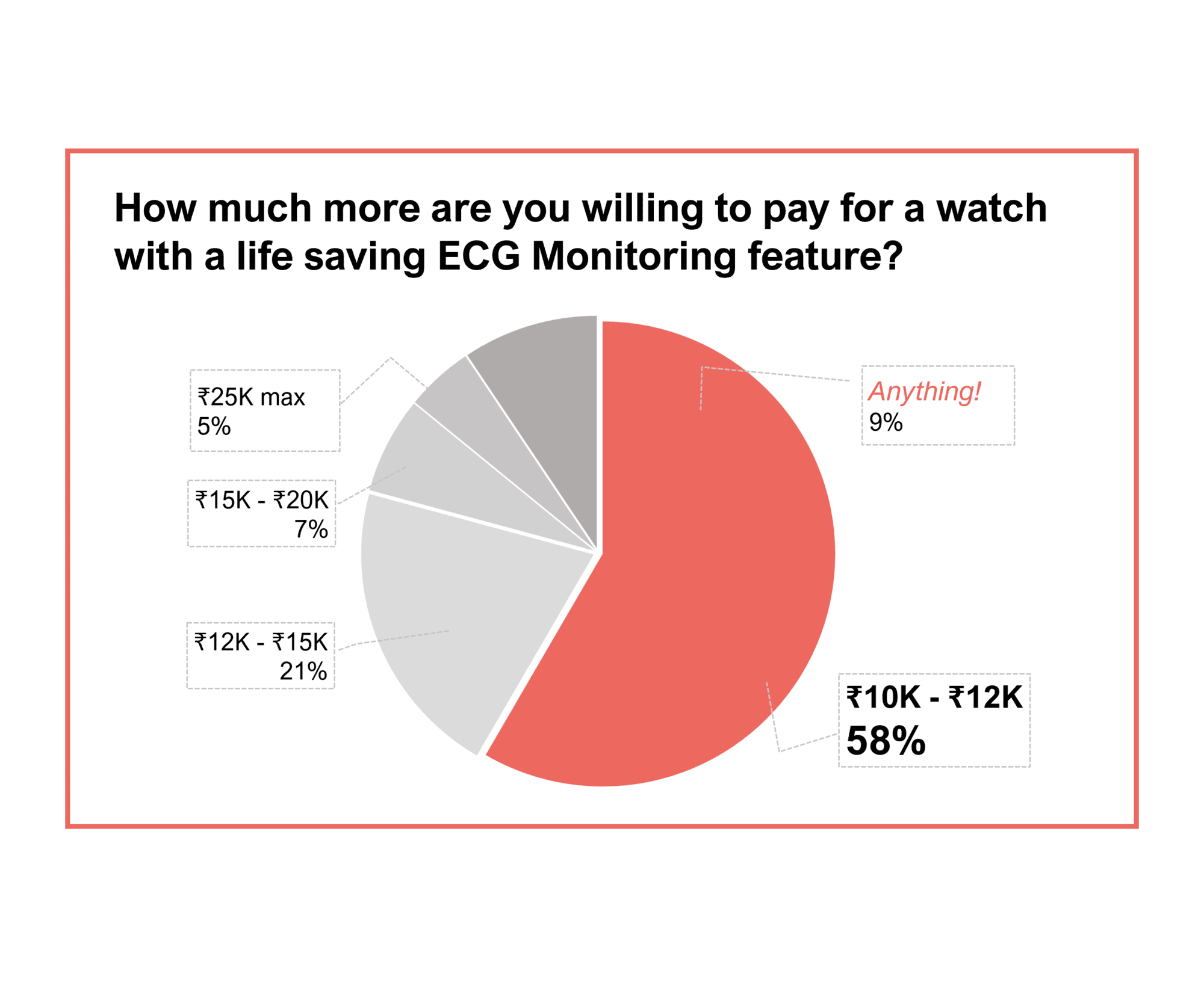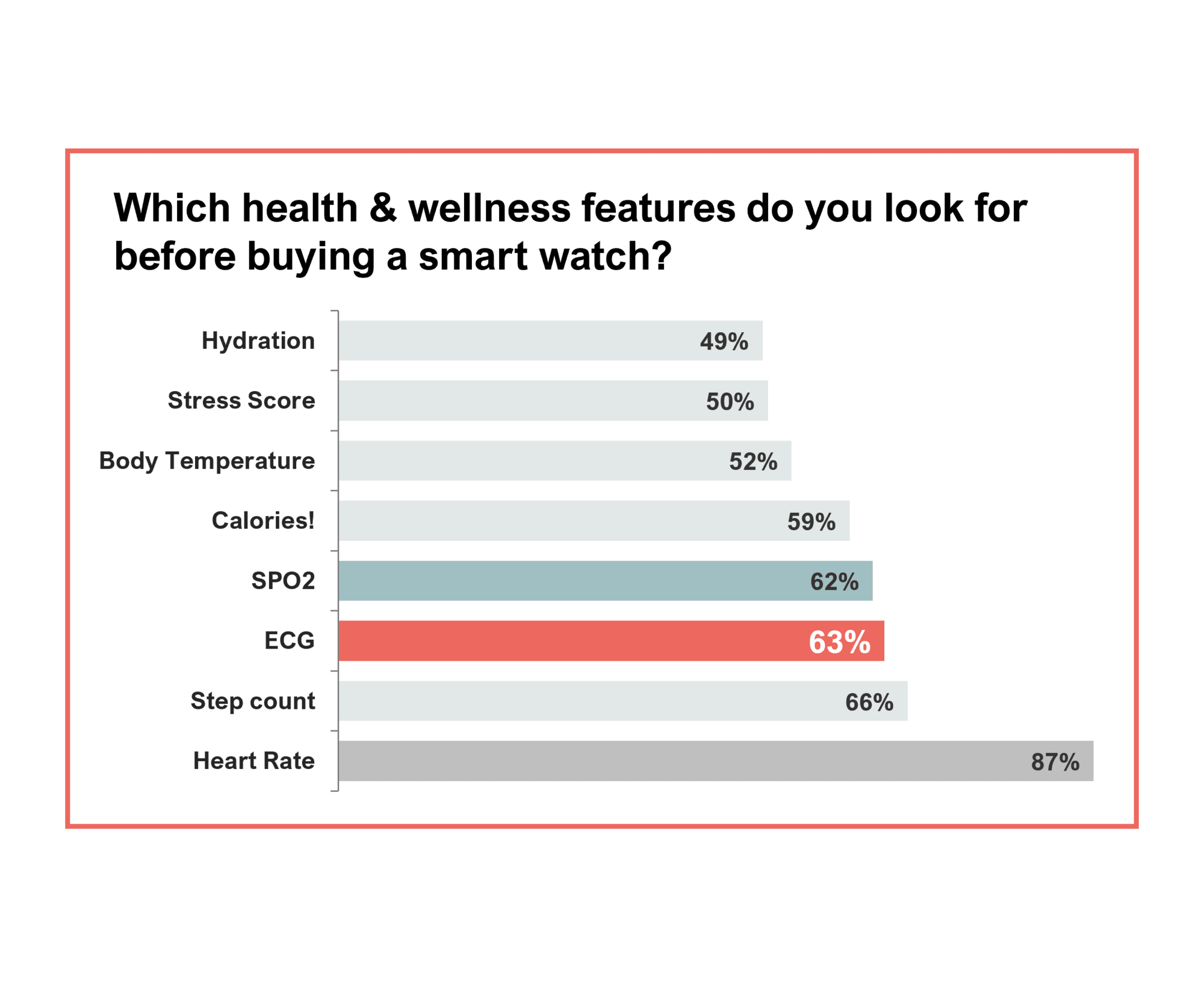
As India surpasses North America to take top spot in the global smartwatch market, research suggests that younger, more tech savvy and wellbeing-conscious generation could soon be prioritizing accuracy over price and brand when it comes to tracking their own health. [1]
Is the Indian smartwatch market, well-known for its affordable price points and loyalty to local manufacturers, about to get a face lift?
Rise of ‘Health Ownership’ in India
Despite having less than 20% of the world’s population, India accounts for approximately 60% of the world’s heart disease burden, with cardiovascular disease (CVD) responsible for 28% of all deaths in India. [2]
CVD is not solely a disease of the elderly. In fact, it is affecting younger people at an increasing rate, with the average age of CVD related deaths in India being 10 years younger than in Western countries.
Promoting health education and awareness around the risk factors for CVD is critical.
It is encouraging to see, therefore, that the consumer health industry is now one of the fastest growing sectors in India, contributing factors including increasing digital penetration enabling improved accessibility to healthcare products and services, growing health awareness post-pandemic and increasing affordability. [3]

Consumers are increasingly taking their health and wellness into their own hands. Additionally, consumers have also shown a willingness to pay to avail of best-in-class products when it comes to their health. Over 50% of our respondents said that they are willing to pay ₹10K – ₹12K for a lifesaving ECG monitoring feature on their smartwatch.
Government interest in driving this movement
The value of continuous remote patient monitoring and the preventive healthcare agenda is of significant value to both the consumer and the clinician in terms of early intervention and diagnosis through to increased cost efficiencies.
Significantly, in 2020, the Indian government launched the National Digital Health Mission (NDHM) to create a national digital health ecosystem that enables doctors to access patients’ health data in real time. In the same year, eSanjeevani, a telemedicine initiative was launched to support virtual consultations and the monitoring of CVD treatment plans between doctors and patients.
Demand for ECG as a feature on smartwatches
Shockingly, around 80% of CVD deaths are preventable.
Advancements in technology, ranging from diagnostic and treatment devices to cloud and consumer technology, can play a key role in improving the quality of life and potentially reduce death rates.
Towards the latter half of 2020, globally people started taking an active interest in attending virtual workouts as the pandemic transformed Zoom into a household name. People took an active interest in monitoring their health, and other vital signs using a smartwatch. The smartwatch was no longer just a step count tracker. India, in particular, reported 141.3% year-over-year (YoY) in 2021. [4]

When we conducted a survey in India, asking young adults which health & wellness features they look for before buying a smart watch, step count and Heart Rate were the most sought-after features. However, we were surprised to see that ECG was chosen by 63% of respondents, more than SPO2 (oxygen levels which are one indicator of covid).
ECG was thrust into the wearable spotlight via the Apple Watch Series 4, but can now be found on smartwatches from Samsung, Google, Fitbit, Huawei, and Garmin.
Consumer wearable devices can now deliver medical-grade levels of ECG data and as they are worn by the user, monitoring can be carried out at regular intervals which builds a comprehensive picture of a person’s heart health, detecting any cardiac abnormalities, for example atrial fibrillation which increases your risk of stroke, heart failure and other heart-related complications.
Not all wearables are created equally…
As the battle for the more discerning ‘medical consumer’ rises, expect to see tech companies battling it out on the features accuracy front.
As health care shifts to a patient-centric model, consumer health wearables can play a central role in prevention and care while laying the foundation for the future of health — in which care leverages data to support preventive approaches and overall patient wellness. [5]
A cautionary note, however. By getting closer to health data and insights, they are moving into territory that may require greater trust from both users and health care providers.
B-Secur’s gold standard, medical grade ECG signal monitoring, recognized by leading heart health clinicians is one vital step on that trust journey and towards providing best in class preventive and diagnostic technology.
[1] B-Secur research – September 2022
[2] Source: Indian Heart Association (IHA)
[3] https://www.weforum.org/agenda/2021/03/3-key-reasons-consumer-healthcare-sector-is-growing-in-india/
[4] https://www.idc.com/getdoc.jsp?containerId=prAP48869122
[5] Neal Batra, David Betts, and Steve Davis, Forces of change: The future of health, Deloitte Insights, April 30, 2019.